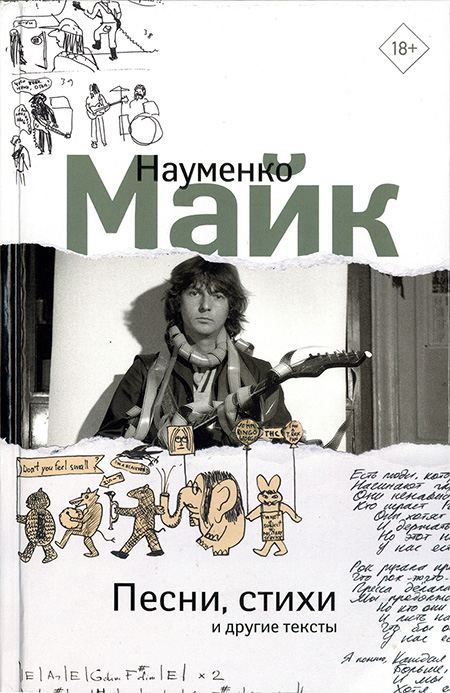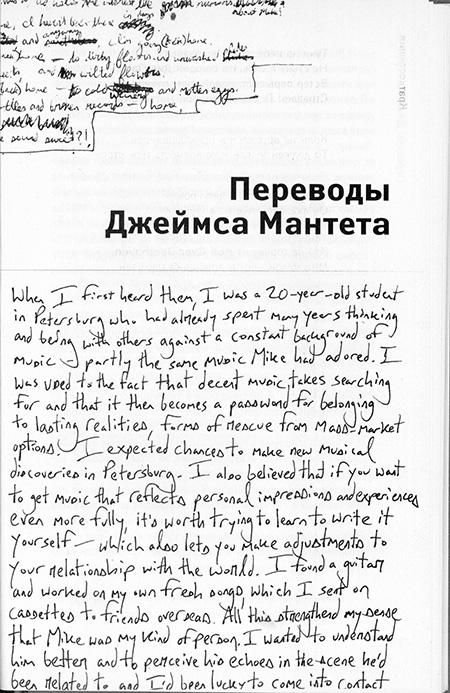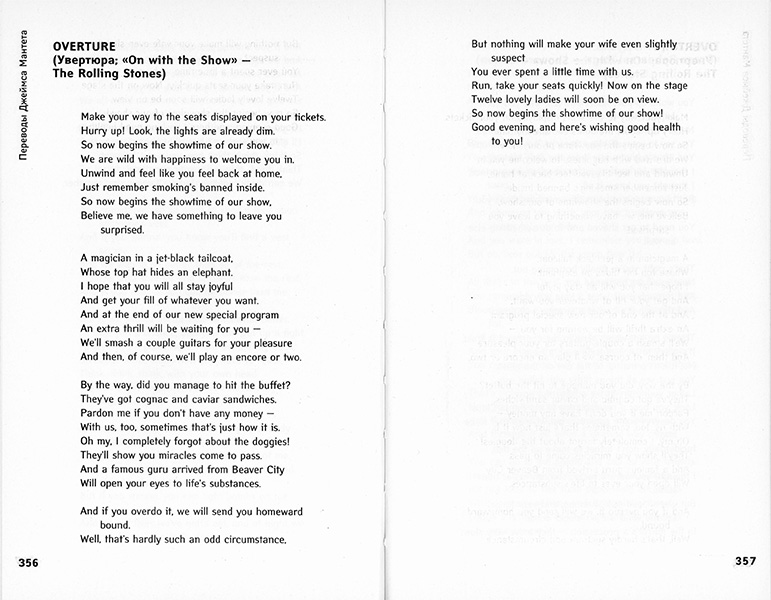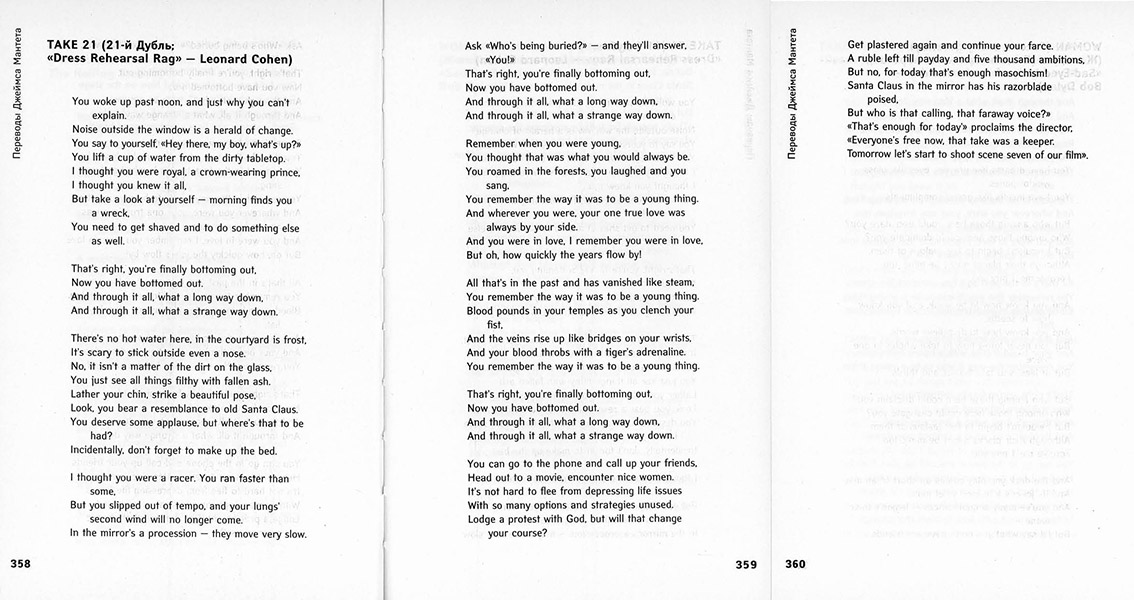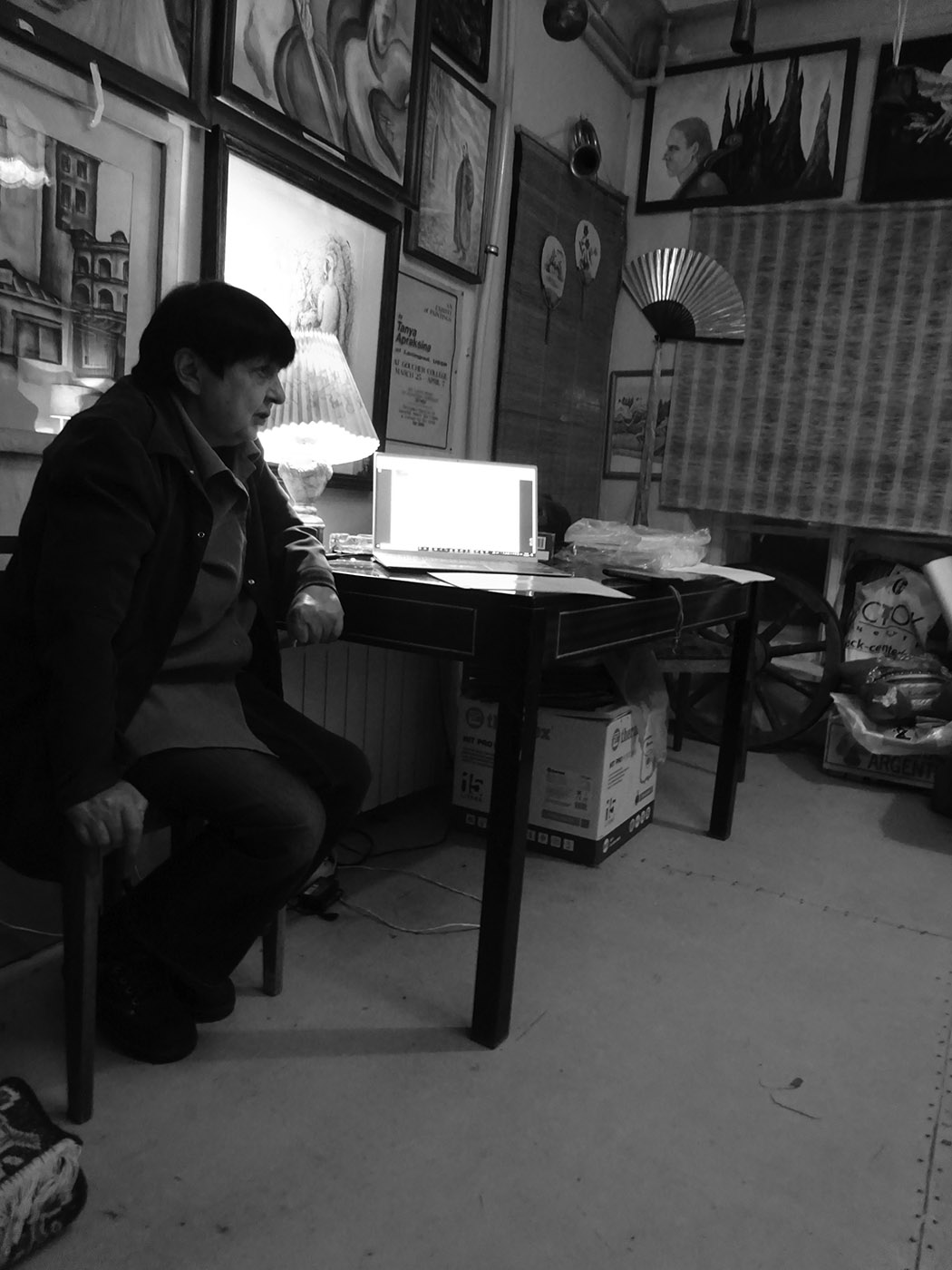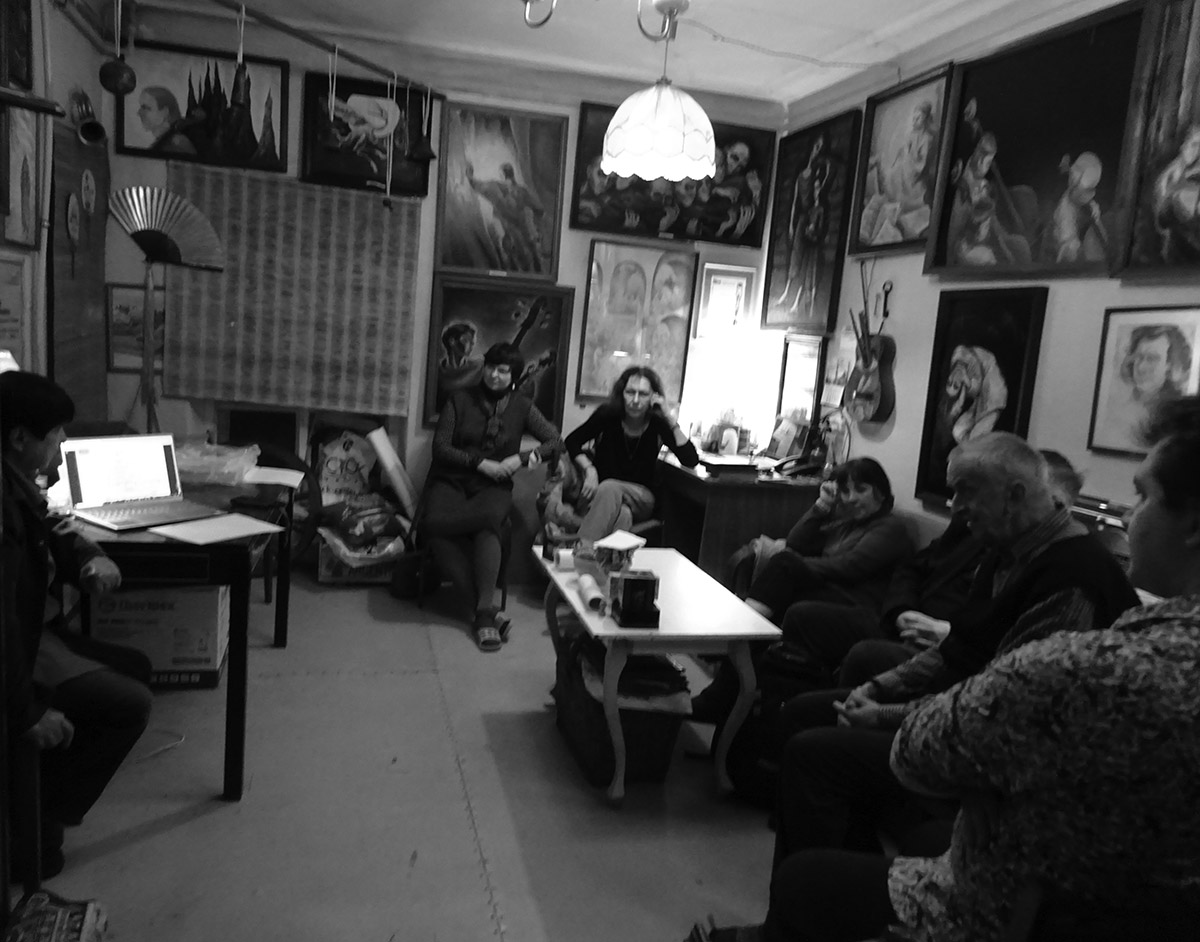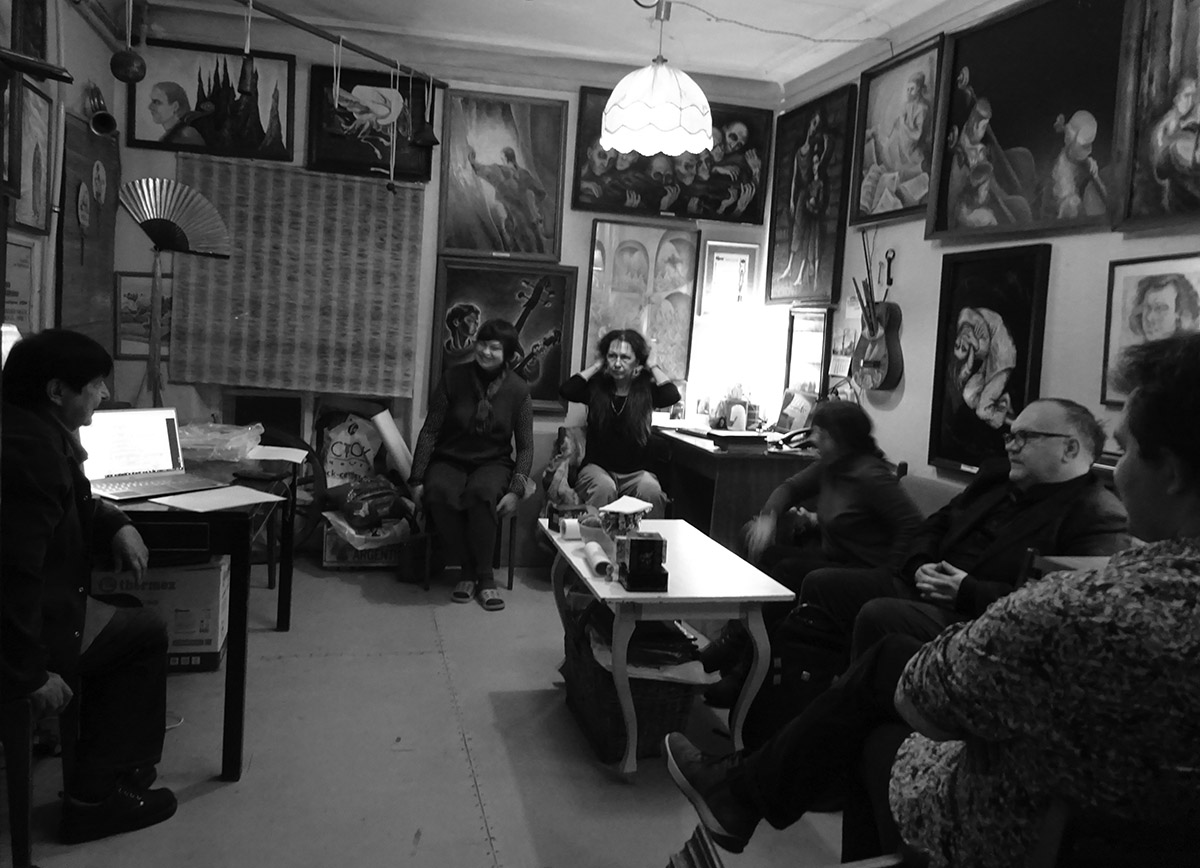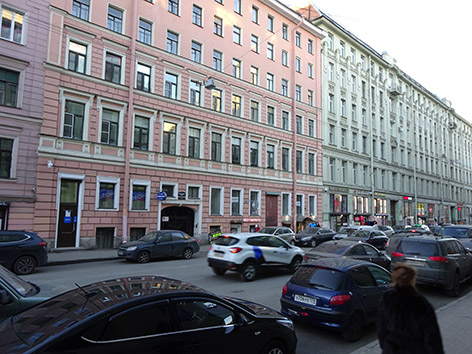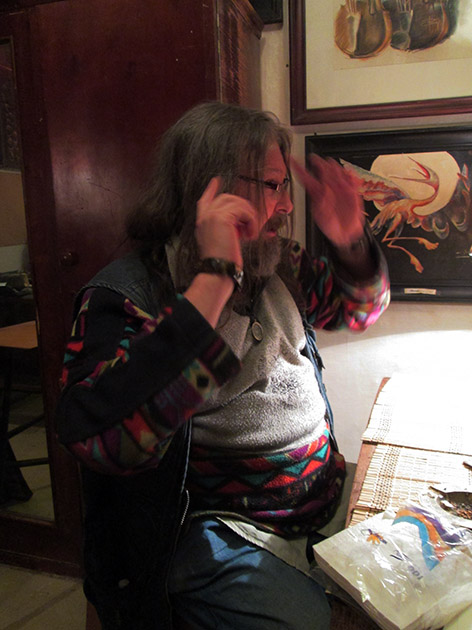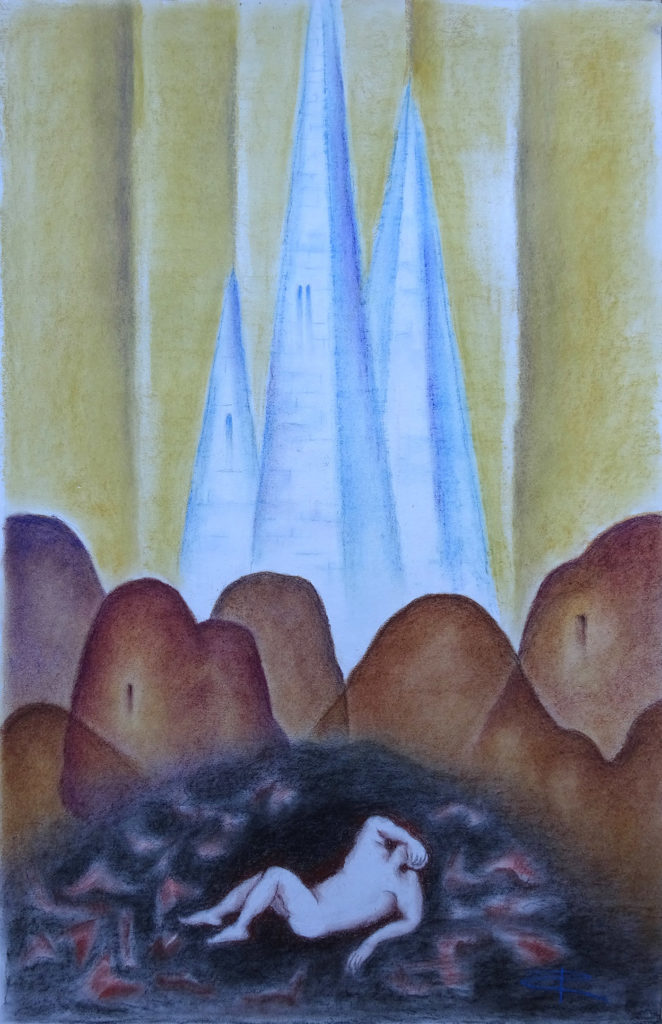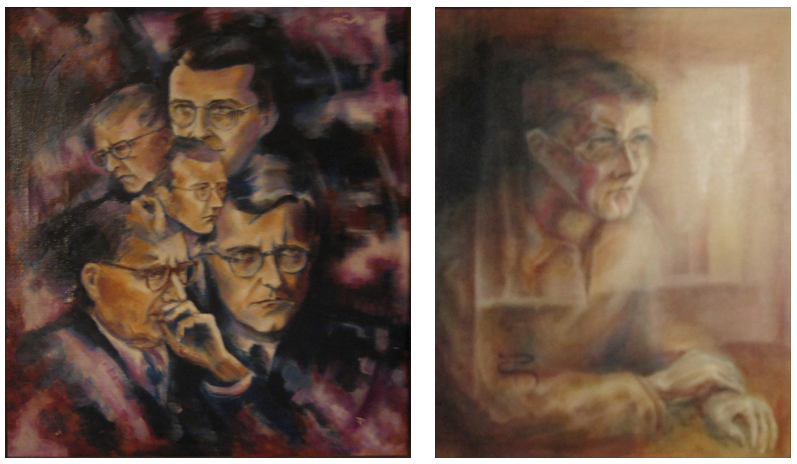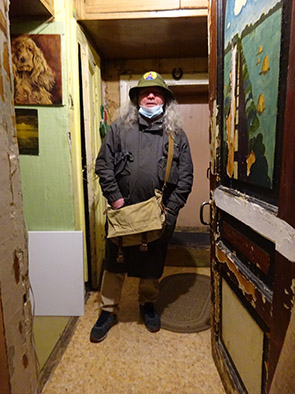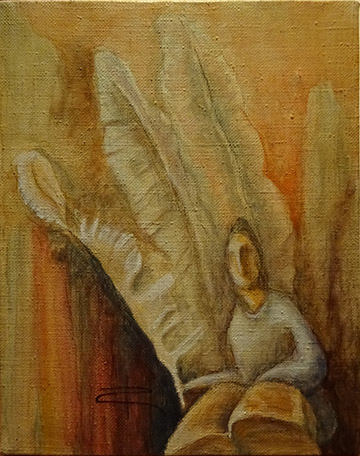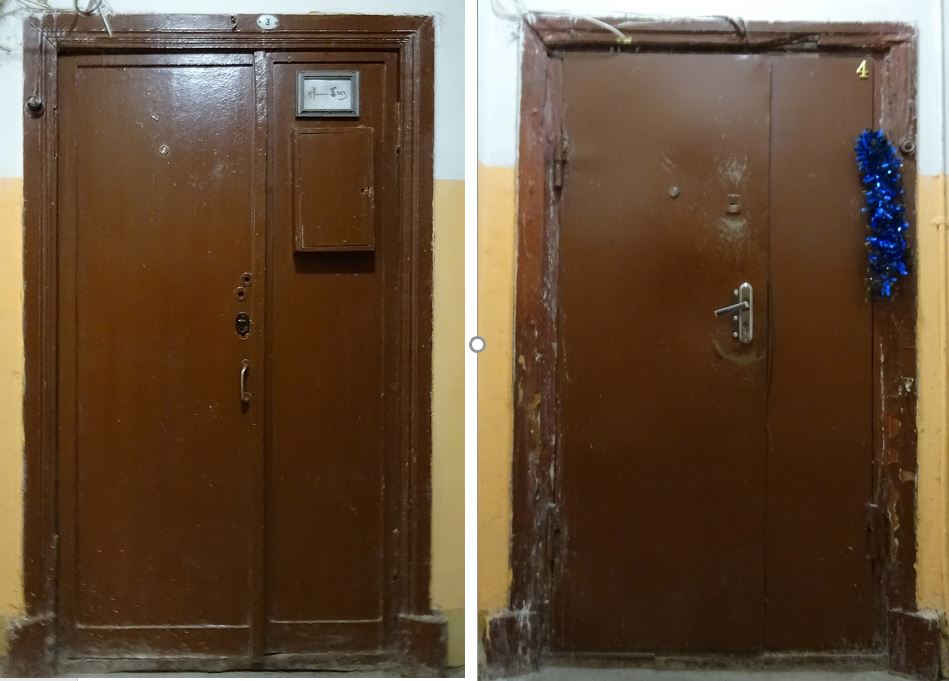Echoes of Influence: New Edition of Mike’s Texts Includes Translations of His Songs
I’m excited to share some great translation news from late 2024, carrying over into early 2025: the major Moscow publishing house AST has released a new book in the series “Russian Rock. Poetry. Legends” titled “Mike Naumenko: Songs, Poems, and Other Texts.” That alone is a nice development, but what’s more, the book also features a concluding section called “Translations by James Manteith.” In it are 11 of Mike’s songs in singable English translations. As the lucky translator, I’m grateful to the book’s coordinator, Mike’s close friend Igor “Isha” Petrovsky, for inviting me to participate in this project, to the publisher for their support, and to my collaborator, the artist and writer Tatyana Apraksina, for her help in polishing the translations. Isha already faced a big challenge in organizing the primary content, including writing comments for each song and all the other material by Mike in the book. It’s amazing that the translation aspect fit in, too, like a set of bonus tracks.
In 2023, Isha, who knew about my translations of Mike’s songs, let Tatyana and me know about his work on the book’s manuscript. Since the first publication of a book of Mike’s lyrics and other writings in 2000, new material had come to light and people had gotten a better grasp of his work’s significance. Meanwhile, the original book had sold out and was hard to find. All this got Isha and others thinking the time had come to assemble an updated edition with expanded content and commentary. As part of that, Isha saw a case for including some translations of songs that have strong connections to English-language sources.
Not all of Mike’s songs have obvious English-language antecedents, but when they do, those echoes of influence undergo intriguing transformations. For many people who know at least something about him, Mike’s reputation is closely tied to his ability to build on others’ beginnings, absorbing their ideas and impulses — on one hand, “Russifying,” as a St. Petersburg writer recently told me, and on the other, having a personal conversation with the material. Some people belittle Mike for such songwriting, while others consider him multifacetedly talented, including as a cross-cultural translator. While I don’t endorse all of Mike’s creative decisions, I belong to the camp of his admirers. “Even if it’s plagiarism, so what?” as I heard one St. Petersburg musician say. Indeed, in the history of folk, blues, rock and even classical music, borrowing ideas is often entirely respectable, like a composer might write variations on a theme. Innumerable commentators have criticized Bob Dylan, one of Mike’s main sources, for the same kind of borrowing, and he’s not even performing the feat of borrowing across languages (or maybe he has on occasion; his talent would certainly allow it). Dylan, for his part, embracing the traditions of creative interplay, has freely encouraged others to “steal” from his work. It seems clear he’d approve of how his songs, and those of other good (and even less good) songwriters, are woven into Mike’s work. It’s a shame that the span and character of Mike’s life kept him from stealing more and writing more than he did. That would have meant more than treating existing song canons as inert, commoditized objects on pedestals.
What enables Mike’s higher borrowing is his originality, which gave him his drive and remains at the heart of his songs.
As in discussions of his muse, Mike liked to hold his cards cagily, which may have amplified his work’s communicative power. Dylan has often done similarly. If Mike had stopped to footnote his methods, reference and purpose along the way, his songs might not have caught on with audiences on such a personal level, where his music also has so much integrity. His alchemy can now be contemplated endlessly, while the songs themselves, as Led Zeppelin put it, remain the same.
My translations in the new book aim to give a clearer meaningful look at Mike’s relationships with his sources. A lot of English-language rock music of Mike’s era has informed my life for a long while, but Isha’s commentary helped me discover songs I’d somehow missed. I hadn’t fully explored, say, the obscurer alleys of Alice Cooper or The Rolling Stones at their most decadent and surreal. Yet after hearing the relevant songs, I found I preferred Mike’s spinoffs. On the other hand, Isha welcomed and incorporated a few of my own notions about Mike’s sources. To my surprise, the main part of the publication includes my thoughts, graciously credited by Isha, on the ties between Dylan’s “Idiot Wind” and Mike’s “Golden Lions,” as well as between Dylan’s “Hazel” and “Just Like a Woman” and Mike’s “Maria.”
Most of the translations featured in the book had existed in some form before, but each underwent careful guitar-aided editing during a trip to St. Petersburg at the end of 2023. The translations of Mike’s “Overture,” which references The Stones’ “On With the Show,” and his “Take 21,” related to Leonard Cohen’s “Dress Rehearsal Rag,” were done expressly for this project and felt especially influenced by the experience of working on it.
In “Overture,” Mike reimagines the madcap cabaret of “On With the Show” in whimsical fantasies more akin to his Leningrad underground’s comparatively modest, down-to-earth circumstances. His song’s droll, self-deprecating cheeriness helped buoy my spirits amid St. Petersburg’s challenges and delights. When a “Bobruisk Zefir” marshmallow candy store opened near our “Apraksin Blues” editorial offices, I took that as a greeting from the “guru from Bobruisk” whom Mike alludes to in “Overture” — and whose place of origin I translated as “Beaver City,” encouraged by the cartoons of beavers on the Belarus-based manufacturer’s zefir packaging. In the late 90s, when I’d first heard “Overture” on the Mike album it opens, I’d thought of it as an offhand intro like The Beatles’ “Magical Mystery Tour,” a bit less substantial than most of the songs that follow. But the translation process helped reinitiate me into the song as a standalone venture.
As for the somber “Take 21,” for years I’d felt hesitant to engage with its gloom and might not have translated it at all if Isha hadn’t asked me to. In the end, though, I noticed the song imparts a strangely uplifting catharsis. While the scathingly melancholic English original has remained a lesser-known cult favorite among Cohen’s works, Mike’s ragged Soviet take on it has become quite popular. Some listeners may find this song, like others Mike wrote based on sources, more universally relatable and unaffectedly human than the original.
I’ve done many more translations of Mike’s songs than those included in this edition. But this book provides a valuable primer to this aspect of hearing and re-hearing Mike’s music.
I’m also happy and humbled that Isha generously included my preface to the translations, commentary on some of them, and even glimpses of my handwritten early translation (from 2001) and introduction drafts, much like the song lyric facsimiles interspersed elsewhere in the volume.
A list of the translations in the book will help people less familiar with Mike’s work better understand his inspiration. The sources behind each song are noted in parentheses.
- If You Wanna (Если Хочешь; “Let It Bleed,” The Rolling Stones)
- Overture (Увертюра; “On with the Show,” The Rolling Stones)
- Take 21 (21-й Дубль; “Dress Rehearsal Rag,” Leonard Cohen)
- Woman (Женщина; “Sad-Eyed Lady of the Lowlands,” Bob Dylan)
- Call Me Early in the Morning (Позвони Мне Рано Утром; “Meet Me in the Morning,” Bob Dylan)
- On That Day (В Этот День; “Queen Jane Approximately,” Bob Dylan)
- Simple Man Song (Песня Простого Человека; “I Shall Be Free #10,” Bob Dylan)
- Sitting on the Lanes’ White Stripe (Сидя на Белой Полосе; “Watching the River Flow,” Bob Dylan; “Watching the Wheels,” John Lennon)
- Boogie-Woogie Every Day (Буги-Вуги Каждый День; “I Love to Boogie,” Marc Bolan)
- I’m Heading Back to My Home (Я Возвращаюсь Домой; “Going Home,” Alice Cooper)
The book’s coordinator, Isha Petrovsky, is an artist and writer. Continuing to honor his bond with Mike, Isha has written and helped gather content for several group memoirs and other projects related to Mike’s work. Isha has designed covers and booklets for LPs and CDs of concert recordings. He’s led a club of admirers of Mike and his band “Zoopark” for many years. He’s organized many concerts in memory of Mike. He’s curated archival materials from various sources. He’s also provided consultation for films about Mike, including the feature film “Summer.” Mike passed away in 1991, which might seem like a long time ago. Yet like true music, true friendship never grows old. Isha’s and Mike’s friendship will last forever.
Isha has also been friends with Tatyana Apraksina for a long time. Tatyana met Mike even before Isha did, back when Mike was writing his early songs. When Isha invited Tatyana to help co-author song commentary, she read through his manuscript. In some cases, she offered advice, but more often she held back, feeling that her insights about Mike’s work would be better suited for a different project. Isha appreciated her input and gave his blessing for those plans.
I treasure this publication, as well as Tatyana’s and my connections with Isha and other friends of Mike. While she and I were in St. Petersburg in late 2024, it was an honor to receive a copy of the book from Isha and to share it with many people there, who were thrilled to see it published.
It was also meaningful for me to perform my own English-language songs at concerts that Isha and others from Mike’s circle attended.
On top of all this, fresh occasions to talk about Dylan, including a new biographical film about him, have again highlighted the power of music meeting poetry, a phenomenon that not only changed Mike’s life but also influenced many others in the Leningrad underground. This lineage of musical serendipity has lasted at least fifty years but really goes back farther, and will shape the future.
I hope the book helps capture — including through the translations — how the spirit of musical cross-pollination from Mike’s time can bring new inspiration, leading to fresh stories, unexpected turns of events, and deeper connections between cultures and languages.
— James Manteith

